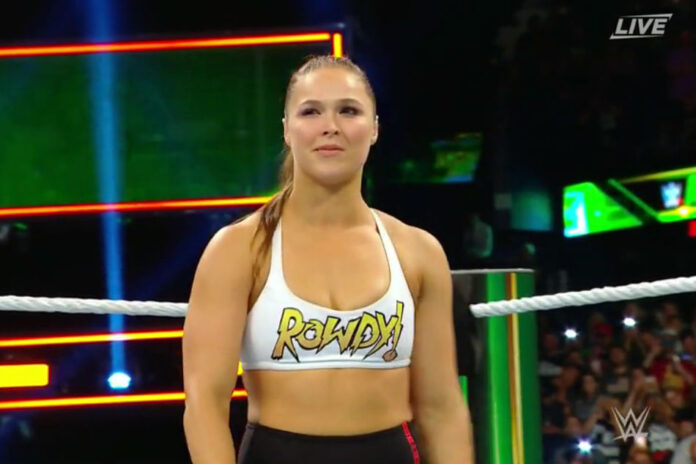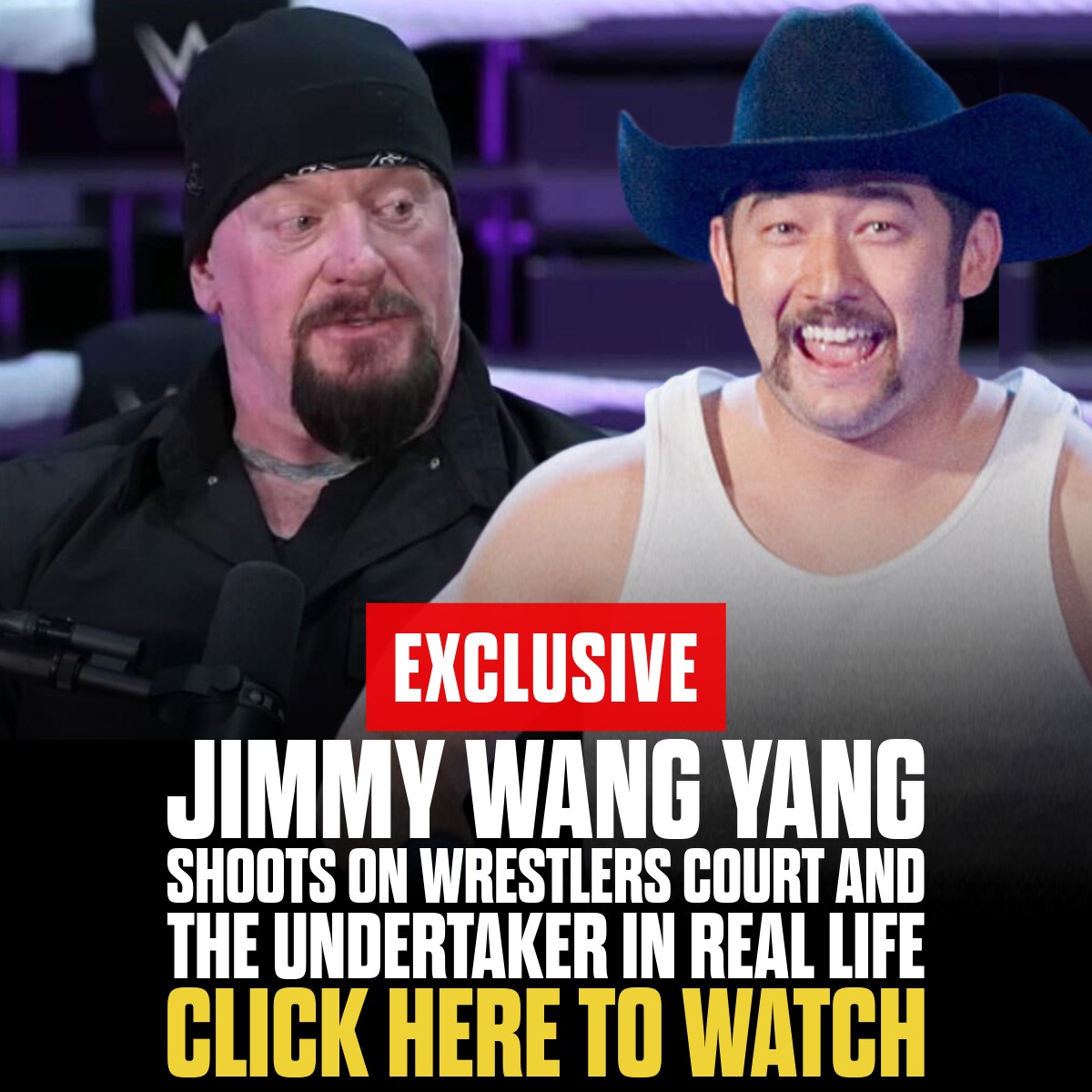The following highlights were sent to us from the interview that CBS Sports’ Shakiel Mahjouri did with Ronda Rousey:
Ronda Rousey agrees with Dana’s assessment that her commitment to the brand stunted her evolution.
“I had to be everything to everyone. I had to promote as hard as I trained, and because I did that we got as far as we are today. I didn’t just make it about me and my performances and picking and choosing my fights for when it would work the best for me. That’s why we were so successful. That’s why the sport had never been hotter. It was because of that work. I promised Dana that’s what I would do if he believed in me, invested in me, and brought me into the company. I felt like if I did anything less, that would’ve made me a liar.”
What would it take for Ronda Rousey to attend a UFC event again?
“I’d rather be out and on my farm or on the beach or something else like that. I think I’ll need to have a reason to go. I don’t know if my kids end up fighting or something like that or someone I end up coaching ends up fighting, I would go, but I don’t know. It’s not really my scene anymore. When I was younger, I wanted to put on a hot dress and go to the fights and hang out with everybody. Now I’m just an old lady who wants to sit at home and sip tea. Plus, I wouldn’t want to go just to like, ‘Ooh, I wonder how people will react to me.’
“I would want to have a reason to go, but we’ll see. I’ll play it by ear. If my kids want to fight, they would be absolutely incredible. That’s how my mom got dragged back into judo. She quit judo and then she never went to a tournament again. Then I got into it and she was very much involved again. So if my kids or if my kids from my dojo end up getting into it, then I would have a reason.”
Does she want her kids to fight?
“If they wanted to, I would do everything that I could to make sure that they’re as great as possible, but I would never push them towards it. You can’t make somebody fight. It’s something that is inside of you that you can’t help. I’ll make sure they know how to fight because it’s a survival skill and it builds a lot of discipline… but whether or not they want to compete, it’s up to them.
Ronda Rousey wrote a “martial arts romantic comedy” called ‘Expecting the Unexpected’
“It’s very autobiographical in a way. It’s the first thing that I ever wrote. It’s what got me into writing creatively… I was trying to write a part for myself. I was like, ‘Well, no one brought ‘Rocky’ to Sylvester Stallone. He went and wrote that.’ So I wrote a part that no one could play better than me. And I ended up writing a story that no one could have written except for me.
“It was right when me and my husband were trying to get pregnant the first time. I guess it was delving into the dilemma of bringing a child into a hostile world and I was getting pregnant during COVID and all this stuff. It’s a crazy act of optimism having a kid and bringing them into the world and believing that you can guide them through all of this that’s going on.
“It was something that was inside of me as a martial artist and hopeless romantic. It’s very much if you read it, it’s me and my husband and our relationship, but taken to the nth degree. What is more difficult than trying to have a baby and no one’s helping you? Oh, trying to have a baby and everyone’s trying to kill you, but not taking itself too seriously at all and doing a lot of it with a laugh and a wink and a cute little love story.”
Choreographing martial arts into the graphic novel
“Fight choreography in comics has not been done in this way before. You don’t often see grappling sequences and stuff like that. It’s a lot of, ‘punch, kick, energy beam!’ I love ‘Dragon Ball Z’ more than anyone, but I’m just saying that in this medium, the action has been limited in how it’s been shown. And so the action that we’ve done in this, I choreographed it, I performed it and I taped it.”
Ronda currently trains one student and has plans to open a dojo.
“I’m actually teaching a little bit. I have one student. My student Ricky Liddell was actually cornering against me when I was fighting, but he was my husband’s coach for a while and now he trains the Navy Seals. So I like to say I by proxy I train the Navy Seals now and that’s what I do in my free time… I’ve really started to fall in love with teaching because when you’re a fighter, it’s like, ‘Ooh, this is something genius. This is awesome. This is going in my pocket and I will tell no one until I catch somebody with it.’ Now it’s a different time in my life where I’m really excited to share these things and teach. My husband and I, when our boys graduate from high school in a couple of years, want to move to Hawaii and open a little dojo and have all the local kids come and train for free.”
Ronda would approach everything in her career, including how she communicated with fans and the media, differently if concussions weren’t such a big issue.
“If the concussions weren’t an issue, things would’ve happened completely differently. Accumulative neurological injury is something that people don’t talk about in MMA. It’s something that everybody is dealing with at a different pace. I started dealing with it at six years old. I started getting concussions much earlier on in swimming. Two kids doing a backstroke in the other direction crack heads or hit the wall doing the backstroke. I started doing judo at a young age and kept getting concussions regularly and multiple times a year and not being allowed to speak up or say anything about it. As a fighter, you’re not supposed to show any weakness or talk about things like that or the inevitable neurological decline that comes with taking headshots. A lot of people talk about it as if it’s making excuses or weakness.”
“I have a whole list for my life to think about, and you’ll never know when you take one hit too many until many decades later. But I also don’t think I would be serving the sport or the division the right way if I stuck around too long. I got to a point where I knew that I literally could not be taking those head impacts and continue to compete at that same level. It doesn’t do the sport any favor. It’s a bad look on women’s MMA in general. I am the representative of that sport.”
Rousey’s concern for overall fighter health.
“You see that happen to a lot of fighters as they age. It takes less and less and less to be able to hurt them and for them to get knocked out. It’s not just them losing matches. Their brains get injured. That is going to hurt them later on in their life and they end up getting punch drunk or slurring or in wheelchairs and all this stuff and nobody talks about it. Fine, but I wanted to move on to another realm that also had a lot of stigma with concussions and neurological injury. Because I wanted to be able to move on to do something else, it also forced my silence on the subject until I was done with that. Then finally, when I was able to put all that behind me, I could open up about it.”
“I wish more people would because the longevity of our fighters is at stake. I want all of these fighters to get old gracefully and hold their grandkids and stuff like that, and not to be another one of those cautionary tales.”
Does Ronda have confidence in the new WWE regime?
“I think anyone’s better than Vince McMahon. The only place you can go is up. I really enjoy Triple H and working with him, and honestly, I haven’t been watching, but I saw something from Natty [Neidhart] saying that they had a card recently that had just as many women on it as the men. That’s what I would really like to see, the women equally represented with not just matches on the card, but time on the show. I feel there’s no place they could go but up and I’m really, really happy for all the women still there and thriving under the new regime. I think there’s, yeah.”
Paul Heyman’s legacy (pushed her to write her memoir and graphic novel).
“I feel like he’s the absolute backbone of that entire industry. People don’t see the backbone. It is hidden underneath the body, but he is literally everyone’s mentor. Every successful storyline has its roots back into him. I think the industry would be a shell of itself without him. They should feel so lucky to have his time because he could spend that genius on anything else. But he spends a hundred percent of his time and energy on the WWE. He is the person who encouraged me creatively. He really believed I am so much more than just what my body can do. He really encouraged me to write and create. He’s the person who told me, ‘You need to go and write your own story.’
“No one saw me in that light before or had that kind of belief in me. I didn’t even have that kind of belief in myself. I wrote the logline, and then after shattering my knuckle, going to surgery, jumping straight into a plane doing ‘The Stephen Colbert Show’ to promote ‘Mortal Kombat 11,’ and finally laying in a bed for the first time in four to eight hours, I sat and I typed in a cast on the notes on my phone for 11 hours straight to write the first draft of this. It was something sitting inside of me and Paul Hayman was the only one who saw it. Five years later, I’ve learned so much and put in so much work and so much love into this, and it is finally seeing the light of day. It’s not something that I’m doing to impress anybody. I’ve finally gotten away from that part of my life. You know what? I’m retired. I’m going to do whatever I feel like. I feel like writing a graphic novel and here it is. It doesn’t really matter. If people take it one way or the other. It’s like a compulsion. I had to tell the story and write it. I hope it finds someone, even just one person who needed to read it just as much as I needed to write it.”



